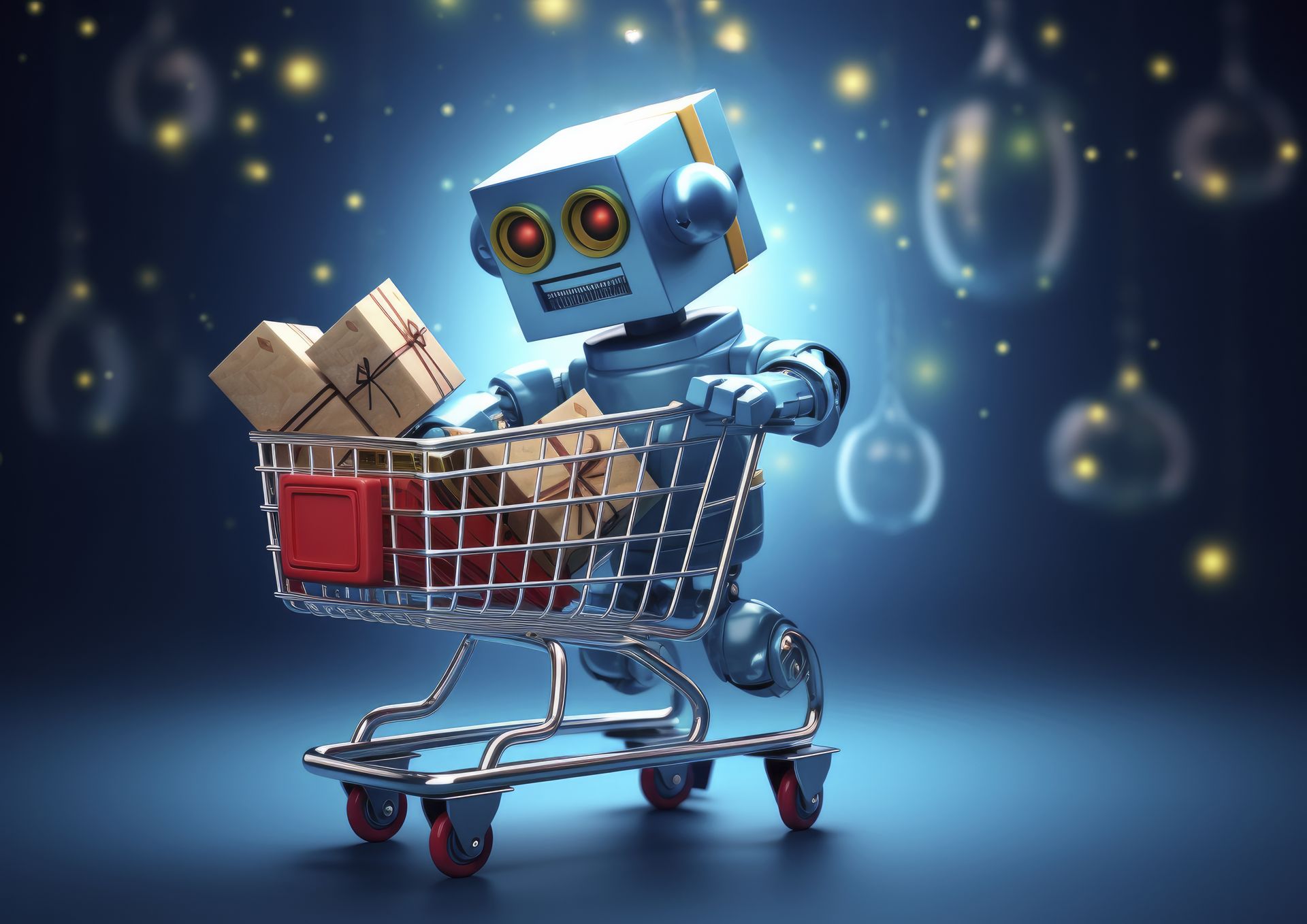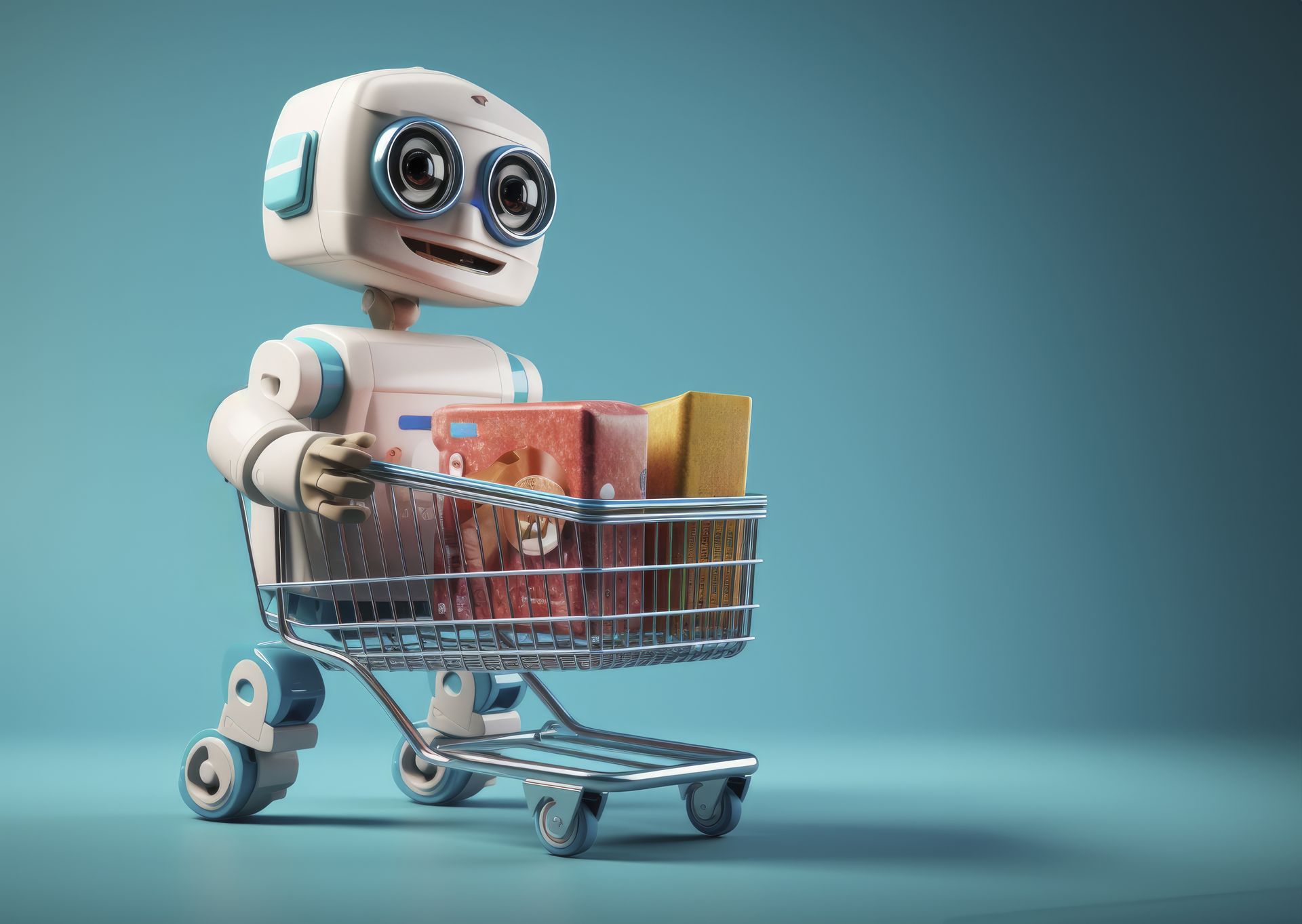Introduction
The past decade has seen a total landscape shift in e-commerce and other changes mostly driven by advancements in artificial intelligence.
Among all these innovations, AI-based e-commerce chatbots have become highly powerful as they reshape the game of engagement by changing the rules in the conduct of businesses in their online engagement with customers.
They can support customers real-time, customize the buying experience, and lead customers through a purchase.

These have, for the first time, afforded them the unique opportunities toward improving customer experience and selling.
In the next article, we'll explore the wave of e-commerce impact AI chatbots are creating and how they are elevating customer satisfaction and revenue.
From a basic understanding of ecommerce chatbot technology to knowing its benefits as well as future trends, this in-depth guide will make it clear why AI chatbots have become an integral part of the modern, ecommerce bot i-commerce experience.
1. Understanding AI Chatbots
AI chatbots are highly effective applications that can reply to a human dialogue.
The machines can apply machine learning and NLP to analyze customer inputs and respond to queries by guiding the customer on an e-commerce platform in a split second.
This does not mean that classical support channels are becoming worthless as AI chatbots provide instant replies and streamline the contacts between businesses and customers.
Various Types of Chatbots:
- Rule-based Chatbots Rule-based: chatbots are based on a predefined set of rules for operation.
They perform very well with simple tasks and can be seen applied to answering FAQ's but have limited scope, as they only respond to specific keywords or commands.
- Machine Learning-based Chatbots: Through the use of machine learning and NLP, chatbots can evaluate complicated queries, learn from the history of queries, and enhance responses over time.
AI-driven chatbots are ideal for handling dynamic and diverse customer interactions in the e-commerce sector.
How Chatbots Work: Principal Technologies
• Natural Language Processing (NLP): NLP is the technology that enables the chatbots to understand and interpret a human's language.
It is a precursor technology toward the natural way of answering most types of questions from people.
• Machine Learning: Machine learning is what allows the chatbots to "learn" from the users in their interactions, becoming more able to provide accurate responses over time based on previous conversations.
• E-commerce Platforms Integration: The integration of the Chatbot with e-commerce websites such as Shopify or Magento will allow it to access information about the products and orders in the other ecommerce store via chatbot in order to provide the customer of e commerce website with seamless service.

2. AI Chatbots in E-commerce
The single most prominent area where chatbots are transforming the customer journey of e-commerce is by providing proactive and round-the-clock support.
The following are the ways used to enhance a shopping experience through them:
• Customer Support and Service Development:
Chatbots can address the most frequent inquiries, guide customers in solving problems, or help them during the purchase process.
Since they are available 24/7, they can handle a lot of queries really efficiently.
• Personalized Shopping Experience:
An AI-based chatbot uses customer data and provides customer-specific product recommendations.
This makes customers interact and their interaction more relevant and aids in improving customer satisfaction. It has many other indirect outcomes, such as higher conversion rates.
• Integration with E-commerce Platforms:
Chatbots are becoming increasingly compatible with popular e-commerce platforms such as Shopify and Magento, giving them access to essential data such as stock, price, and promotions.
Through this integration, chatbots can provide all the product and services-related information product suggestions and help.
3. Importance of AI Chatbots for E-commerce Businesses

There are many advantages of AI chatbots that make them very valuable to an e-commerce business.
• 24/7 Availability and Support:
Since human support teams are not always available except on holidays, it is particularly crucial to the global business to have a chatbot since there could be customers in multiple time zones.
It can answer to multiple questions simultaneously, reducing waiting time and increasing productivity while ensuring that the human customer service agent is attended to promptly.
• Cost Savings in Customer Service Operations:
Most of the customer queries are replied through chatbots and do not need a human support team in sufficient numbers to be there, hence cost saving.
• Data Analytics on Customer Insights:
It provides insights into the likes and dislikes of customers.
That information is sought for targeted, marketing campaigns and enhancing customer experience as based on insights of data analytics.
4. Benefits of AI Chatbots for E-commerce Businesses

An enhanced customer experience can lead to improved customer loyalty, better customer retention rates, drive sales and higher revenue. Here's how chatbots help achieve that:
• Instant Response to Queries:
Chatbots respond to common customer inquiries and feedback in an instant, meeting the customers' wish for quick and handy help.
• Personalized Product Recommendation:
AI chatbots analyze a customer's browsing history and purchasing patterns to offer relevant products, which would lead to a more personalized and enjoyable shopping experience.
- Examples include
Tracking order and status information; that will enable customers to obtain order status information at a glance, enhance the after-sales experience when customers find online retailers, and minimize inquiries from customers.
Easy transactions; various chatbots can perform easy transaction processes, facilitate payment processing, and even facilitate return procedures.
Easy transaction simplifies the buying process and removes impediments in the purchase journey from the customer perspective.
5. Enhancing Customer Experience with Chatbots in e-commerce
Beyond this, AI chatbots have direct leverage on sales as they guide the customers in the buying and sales process, while keeping the customers engaged and interesting in the product or service being sold:
• Increased Conversion through Proactive Engagement:
Chatbots can greet visitors, ask questions with relevant follow-up information about products to guide and engage customers in the making of a purchase.
On the contrary, it can also be in one of the following manners:
It can detect the time of when a buyer is leaving his cart behind and help him in shipping queries or offering deals to get the purchase completed.
• Chatbots for upselling and cross-selling:
Chatbots may present such related products when customers shop for that would complement the product purchased by the customer in online store, resulting in an increased average order value through upselling and cross-selling.
Some case studies include the e-commerce brand where there have been several successful implementation of AI chatbots to sell.
For example shop online, clothing brand H&M uses a chatbot to offer discount codes, notify customers and recommend fashion and these have led to greater conversion and satisfaction from its customers.
6. Challenges and Limitations

Despite some great advantages offered by chatbots, they are not without their challenges:
• Misinterpretation of Customer Questions:
The customer may sometimes get confused with the type of question that was posed, especially on complex and ambiguous questions.
Improvements in NLP seek to minimize the chances of such misunderstandings.
• Data Quality Dependence:
The capability of the chatbot is much dependent on the quality of data it has been trained with.
Less competent data may result in inaccurate or irrelevant responses.
• Automation: Human Interaction Balance:
With the convenience that chatbots provide, customers sometimes need personal touch.
There is always a constant need to find an appropriate balance between automated and human support.
• Preserving Customer Privacy and Data Security:
Collection and analysis of data about customers create many privacy issues. Businesses must ensure data security or adhere to the rules and regulations such as GDPR in order to build trust with customers.
7. Future Trends in AI Chatbots for E-commerce
The AI chatbot technology field is changing rapidly, with a number of interesting trends on the horizon:
• Voice-activated chatbots:
The voice-based interactive chatbot trend is still very nascent and becoming highly favourable as it appears quite organic and rather hands-free in nature, which implies easier access and engagement.
• Better Performance with Machine Learning:
The advancements in machine learning mean that chatbots will become better performance tools and be able to understand most customer preferences to provide accurate responses.
• Other emerging E-commerce Technologies:
Near the future, ecommerce chatbots are bound to integrate with some other developing technology such as AR, which is meant to allow customers to better visualize their purchase before buying the good.
9. Best Practices for AI Chatbots Implementation

The best way to get the best out of chatbots is to apply the best practices about using them:
• Select the Right Platform:
Choose a best ecommerce chatbot examples and platform you think will best fit your e-commerce site and integrates all the features you are likely to need for best ecommerce chatbots.
• Design User-Friendly Interfaces:
Make sure that your interface is intuitive, accessible, and including a suitable tone of voice for your brand.
• Continuously Monitoring and Optimizing:
The basic thought behind this is the continuous monitoring and updating of chatbots to make them function more appropriately by being in step with the changing needs and requirements of customers.
• Train Chatbots on Various Scenarios:
Chatbots must be presented with varied data and customer scenarios so that they can respond to different inquiries properly.
In summary, what we think
AI chatbots have emerged as the most crucial e-commerce tool to offer unprecedented benefits in a qualitative improvement in customer experience and potential sales boost.
Chatbots extend support through the 24/7 hour concept, personalized recommendations based on its data-driven insights, allowing the business owner to connect with customers on a much higher level and generate revenue better.
Despite some challenges, the technology behind AI chatbots has been continuously improved, and it becomes an increasingly important source for each and every business dealing in the ecommerce businesses i-commerce.
As we look forward, AI chatbots will remain at the center of developing e-commerce with emerging new technologies and more powerful tools for customer engagement.
Businesses looking to get ahead should consider investing in AI chatbot technology now to unlock its full potential for the transformation of customer journey.